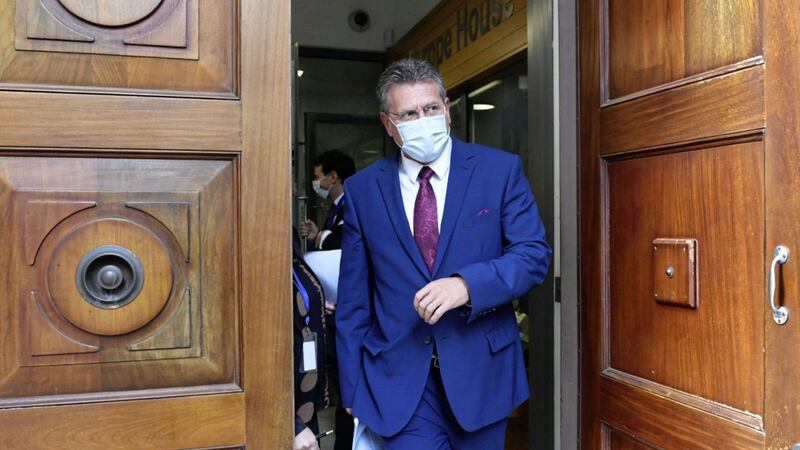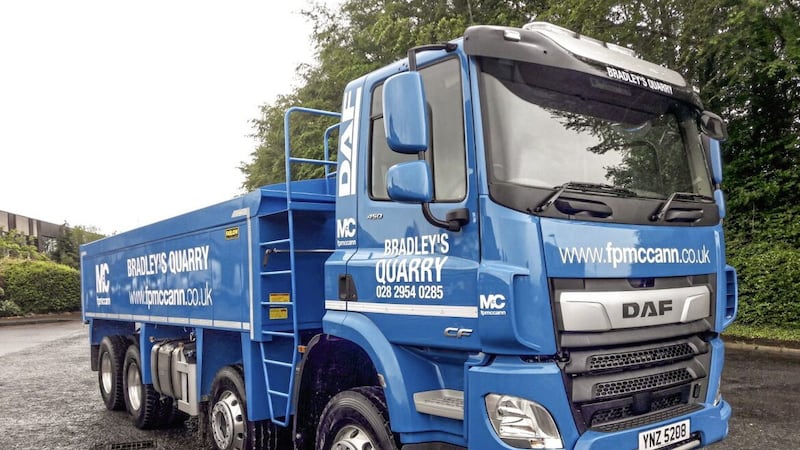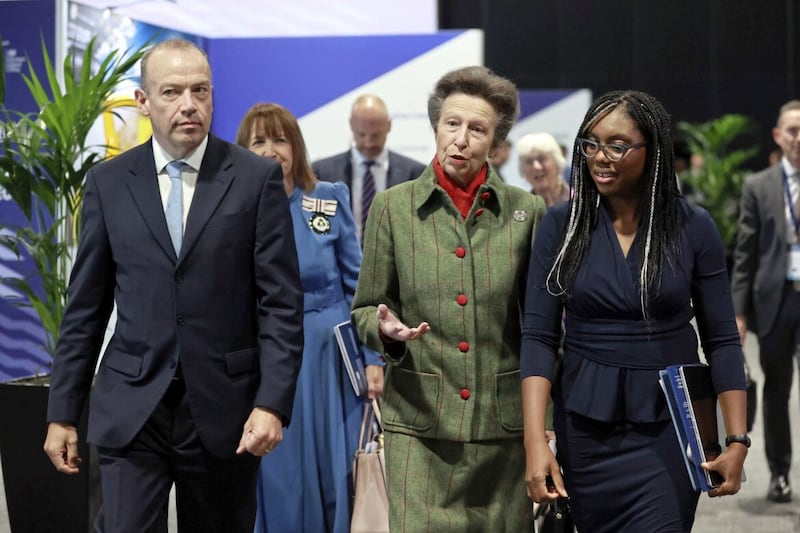In the last few weeks, the business community has had a few curve balls thrown at it. First on the Protocol and then on Covid restrictions potentially continuing into next year. Both developments did not just take the business community by surprise, but the public too. Thankfully, some calm has been restored since.
On the Northern Ireland Protocol, now in its sixth week, firms are reporting that trade is moving reasonably well, and companies are increasingly getting to grips with the necessary administrative requirements. Yet it’s still not plain sailing, particularly when it comes to things such as goods ‘at risk’, rules of origin, SPS checks and controls.
The ripple effect of events from the last few weeks meant it was good to see Michael Gove meet with Maroš Šef?ovi?, and to hear their joint commitment to consult more widely with NI business groups. Because business is determined to make the Protocol work in the long term.
There is a need to restore confidence and agreeing extensions to existing grace periods would be an important first step. Any additional time which is agreed must be spent wisely. And all efforts should be made, in partnership with business, to co-design workable lasting solutions so that business has the certainty it needs to continue to trade and invest.
Northern Ireland's economic output has contracted by around 12 per cent during 2020 – that is the largest and fastest rate on record. Getting the economy back up and running should be a priority for everyone.
In early February, CBI director-general Tony Danker and I wrote to the Executive calling on them to use this time wisely to get a roadmap ready for when the economy can re-open. Planning is such a critical component of success and the business community as well as the public need to know what the plan is for unlocking sectors as both the vaccine and seasonality reduce infection rates.
Understanding the broad sequencing of events for vaccinating teachers, opening schools unlocking sectors such as hospitality needs to be done in a carefully planned and coordinated way. Businesses are not agitating for exact dates, but rather they need to know the order of events so that they can make detailed plans for bringing staff back or organising stock. CBI members tell us that they would prefer to have a slow and steady reopening rather than sudden changes and a stop start approach to restrictions that we have seen to date are chaotic.
Construction firms say that school closures are having a big impact on productive capacity and they would favour school re-opening to be prioritised as an economic enabler. In the hospitality sector, the ideal notice period for reopening is probably three to four weeks, with seven days being the bare minimum for most restaurants and bars.
For example, beer producers need around two weeks to switch production from bottles to kegs. It’s this kind of detail that is important to successfully unlocking sectors and highlights just how important collaboration between industry and government is needed.
Success and safely opening up the economy will not just be dependent upon the vaccine roll-out; rapid workplace testing is also a key enabler for bringing down infection rates and keeping employees safe.
Businesses see it as a key component to reducing infection, protecting their people, and unlocking economic activity. The UK Government has provided much needed support to firms in England and Wales to use lateral flow tests. Companies in Northern Ireland want to see similar support rolled out in the local economy.
Recovering from the deepest recession for 300 years is one thing, but setting ourselves up for long-term sustainable growth is quite another.
A new Ulster University report explores our competitiveness over recent decades. It finds that Northern Ireland is a good place to live and work with high ‘well-being’ and ‘quality of life’ scores; but worryingly it also reveals a slow erosion of our competitiveness over the last two decades.
Perhaps more concerning still is the fact that this report forecasts that the deteriorating competitiveness pattern for business is likely to continue without significant policy change. Factors influencing our competitiveness such as education and skills exhibited the largest decline over the decade and productivity remains stubbornly low.
Unfortunately, the latest draft budget from the Executive has once again only got a one-year time frame. Much-needed ring-fenced funding to improve local skills, competitiveness and productivity is largely absent.
Hopefully, next month's UK budget will provide an opportunity to focus on a balanced economic recovery which will support devolved administrations to ‘level up’, invest heavily in skills, infrastructure, and those other critical competitiveness indicators.
The beginning of 2021 has undoubtedly been a turbulent time for Northern Ireland business, but it is important to remain optimistic and focus on what we can change for the better. I have no doubt that as springtime approaches, and we see the successful roll-out of vaccinations across the region, that spirits will lift.
Companies and employees are itching to get back to work. But importantly, we know what is needed so things can improve – a roadmap to re-opening for the economy in the short-term and a focus on how we improve our long-term economic competitiveness.
:: Angela McGowan is CBI Northern Ireland director







